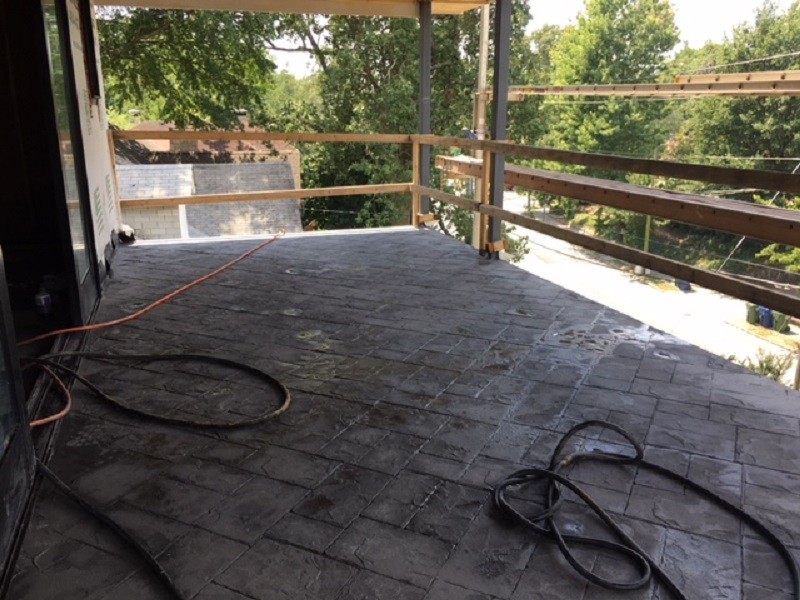On this Labor Day weekend, AccessWDUN salutes the workers who faithfully take care of the jobs that most of us take for granted. While we know there are dozens of occupations that are deemed less-than-glamorous, we realize those who are employed in those fields are vital to keeping our communities running. We selected three such occupations to spotlight during the 2018 Labor Day weekend: a farm worker at Jaemor Farms, a project coordinator on a construction crew and a sewer cleaning technician with the City of Gainesville. Hopefully, their stories will help you appreciate these folks who are in the trenches every day. In this fourth segment, AccessWDUN report Scott Kimbler didn't just visit the work sites, he got down and dirty, too.
When a person or business orders concrete to be poured, they are generally not around to see it done and kind of have the understanding that it just magically happens.
When I am not at AccessWDUN developing news, I can often be found involved in projects in my family's business, Concrete Placement Construction in Lilburn.
We not only do commercial concrete flat-work, but also a fair amount of residential projects, as well. And, we get dirty - sometimes, real dirty.
The first order of business in pouring new concrete is to clear the space where you are doing it. For this, we generally use tractors and shovels. This puts us right in the middle of dirt and its variations - mud and dust. As the tractors run and we are operating or working alongside them, we get greasy, dirty, have exhaust blown on us and likely ended up muddy and just dirty to varying degrees.
Then it is set-up time. This involves sometimes massive amounts of 2”X6” boards. So there is cutting leading to sawdust, carrying and laying which leaves mud scuffs on clothing, plus our power and hand tools are likely dusty and dirty from the several jobs before.
The next stage is pouring and finishing the concrete. We only thought we got dirty the day before. No matter what the job, pouring concrete is messy and sloppy. Even if we are just doing a standard 12' wide driveway, it is sloppy.
When the concrete is poured from the truck, it is really like cake batter, but with gravel in it. As it comes off the truck, it splatters from the end of the shoot sending material in every direction and we are splattered with it through the whole process. Then with finishing, you are up close and personal with every inch of the surface and kneeling alongside, getting more dirty.
For about 10 months out of the year or more, Georgia temperatures, combined with the physical labor means our bodies are going to sweat - heavily and from every pore. We are often so drenched in sweat, we are sometimes asked how we got so wet, as though it must have happened from an outside water source. But, no - it is the just the sweat.
After the finishing process, it is clean up time, removing all the forms and cleaning them up to use on future projects. Shovel, pick and hammer time - the stakes that hold the forms are dug out the ground and piled on one of trailers, while the forms themselves are de-nailed, scraped of material and stacked on a trailer, as well.
As has been the case for most of my adult life, washing machines are known to only last for a few years before being damaged beyond repair from the materials that come home on clothing. The clothing itself does not last very long, either.
Concrete has long been respected as one of the more difficult aspects of commercial construction, but is also seen by many as among the more dirty.










